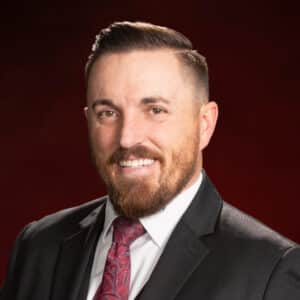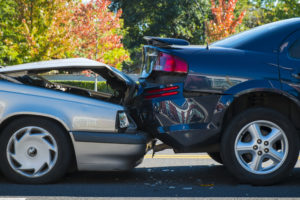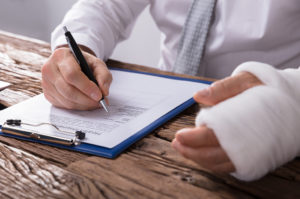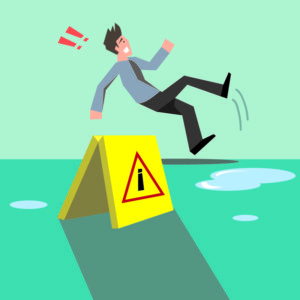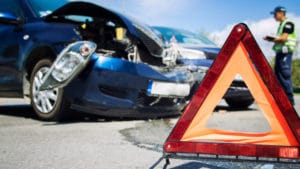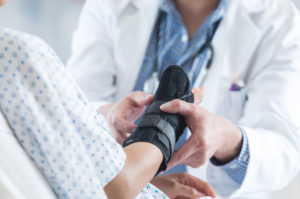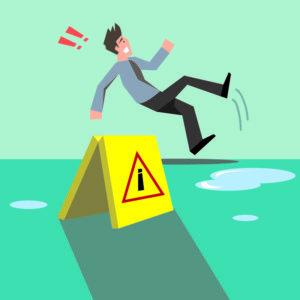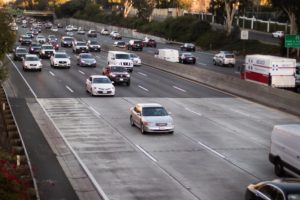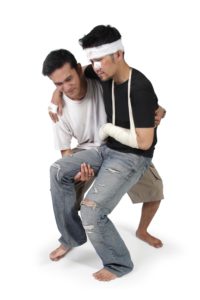Moving from public thoroughfare to private property can be quite seamless. In the Las Vegas area, shopping malls may have large parking areas surrounding the stores, and many Casinos have large parking lots surrounding the hospitality areas of the casinos. Making things more confusing is often these large lots are surrounded by businesses on out-pads, which are a part of the private property, but may have street exposure and are leased out to supporting businesses which may or may not have any connections to the casino or shopping mall.
In such situations, the parking lots may have perimeter lanes linking the various out-pad businesses with each other and other traffic lanes which move traffic closer to the shopping area or casino itself. In many cases such lanes are marked and controlled by stop signs and lane markings which may look and act identical to public roads. It may be difficult to determine where the public road ends and the private property begins.
The point is, that private parking lots themselves can present complex driving situations. In remote areas of parking lots away from the businesses themselves, many drivers may use the parking lot as short-cuts, and speeds may approach that of highway speeds. Most parking lots have posted speeds of 10-15 mph; however, these speeds are not honored in many cases. Injuries from accidents on private property are more likely under such situations.
Fortunately, the same liability laws which govern vehicle accidents on public thoroughfares apply to accidents which occur on private property as well. Two major differences that you may encounter with accidents on private property: Police may not respond to an accident on private property unless someone is injured or substantial property damage has taken place; and police may decline to issue citations and provide an accident report for a private property accident unless an injury has occurred, due to not having jurisdiction on private property.
This places the responsibility on the vehicle owner to more fully document an accident on private property in order to provide evidence to support the claim. The first step in any injury accident is to call 911 to report the accident and request medical support for the injuries.
First responders and police will respond to injury cases, or cases of substantial property damage, regardless of whether the accident occurred on public or private property. Depending on the severity of the injuries, you may be transported for medical treatment you and your passengers need for treatment of injuries received.
If you were injured due to a vehicle accident on private property, due to the complexities of accident law, you should consult an attorney to file your claim and represent you with the applicable insurance companies.
On public roads, the state, the owner of the property, assumes no liability for road conditions and other conditions which may lead to an accident. On private property, the private owner of the property may be held liable for missing street signs, missing lane markings, blind spots, and other factors which may have led to the accident. A traffic accident on private property may include some elements of a premise liability case if the property owners can be shown to be negligent.
Private property is also more likely to have CCTV cameras surveilling the parking and traffic areas of the property than public roads. Having this type of documentation of an accident can be helpful to support your case.
The Richard Harris Law Firm sues negligent drivers
In the aftermath of an injury accident on private property, the complexities of the law may be confusing. Don’t attempt to navigate the complexities of such an accident on your own. The lawyers of the Richard Harris Law Firm have the experience and skills to handle such claims. They will investigate your claim and determine all liable parties and file claims with the applicable insurance companies. You don’t need to go it alone…if you’ve been injured due to the negligence of others, call us today to discuss your potential case at (702) 444-4444.












